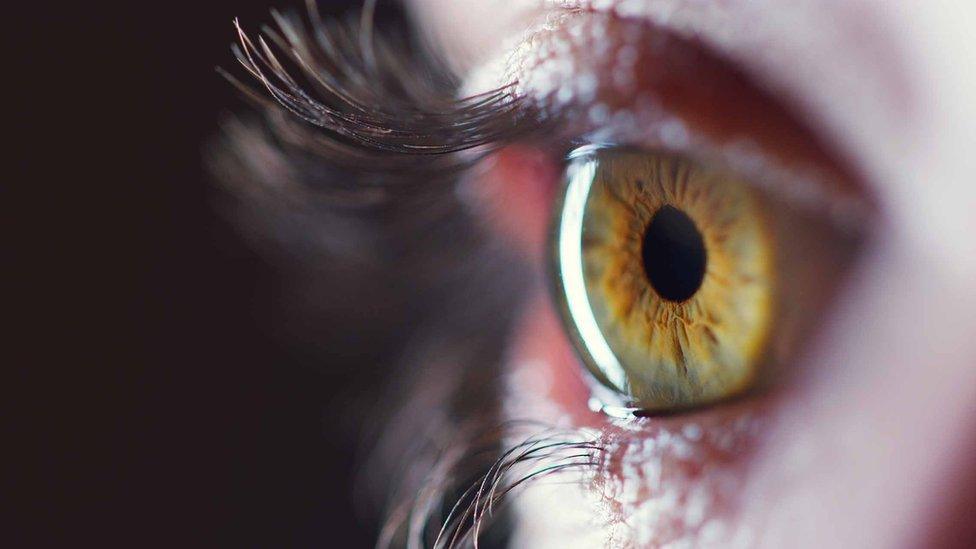Coronavirus: 'Eyesight of thousands at risk due to missed care'
- Published

At least 10,000 people are at risk of suffering irreversible damage to their sight because of missed care during lockdown, experts say.
Only 10% of the most urgent procedures are going ahead and fears about coronavirus mean many of those patients are not attending their appointments.
Specialists warn that a surge in the number of people with sight loss could become "another cost of the pandemic".
NHS England said people should seek medical help if they needed it.
The UK Ophthalmology Alliance and the Royal College of Ophthalmologists have calculated that at least 10,000 people have missed out on care essential to maintaining their sight in England, Wales and Scotland.
They say the risk is highest for people with conditions like age-related macular degeneration (AMD), diabetic retinopathy and retinal detachment who need continued treatment to preserve their eyesight.
Surgery is needed to repair retinal detachment - while those with macular degeneration and diabetic retinopathy require monthly injections in order to prevent their sight deteriorating and potentially losing their sight completely.
Ophthalmologists looked at the number of procedures for macular degeneration or retinal detachment over a three-month period for eye clinics across the UK.
Specialists from the Royal College of Ophthalmologists found that in some areas, up to 50% of patients were not attending the most urgent appointments - and say overall there has been at least 30% non-attendance for procedures in March and April and 20% in May in England.
In Scotland the situation was slightly better - with ophthalmologists reporting that 10% of their patients were not attending.
'I don't want to call the hospital'
Over the three months of lockdown, there have been 1,500 fewer operations for retinal detachment and at least 8,000 fewer people receiving injections for AMD.
Experts warn that those needing treatment for other eye conditions such as glaucoma, diabetic eye disease and infections are also missing out.
Mary Wardlaw, 89, was six months into her treatment for AMD but fears of contracting Covid-19 led to her stopping treatment.
"I found my vision starting to deteriorate. But my children said they didn't want me to put myself at risk by going into the hospital for treatment."
She eventually went in two months later.
"It was quick and easy - and the eye clinic was impeccably clean and I didn't see any other patients."
It is now 12 weeks since Elaine Young, 68, from South Lanarkshire, had her treatment for AMD.
"I'm worried that by not having my injection, my eyesight is getting worse," she says. "I've noticed there are more wavy lines in my vision.
"They say to stay home and protect the NHS - so I don't want to call the hospital to find out what is happening with my treatment when there could be something worse to be dealt with."
'NHS is open'
Melanie Hingorani, chairwoman of the UK Ophthalmology Alliance, said: "It's really important people turn up to their appointments.
"If you're being asked to come in at this time it's because it's really important and you are at risk of permanent harm."
"This is one of the unrecognised costs of the pandemic," said Sherine Krause, chief executive of the eye research charity Fight for Sight.
"There was already a backlog going into the pandemic - it will take a huge investment to clear that and get people receiving the timely treatment they need."
The charity surveyed 325 partially sighted people and found almost three-quarters said their access to treatment had worsened - and 40% said they were afraid their sight would get worse - during the pandemic.
A spokesperson for NHS England said: "The NHS is open for those who need it and people should still contact services if they think they need to."
A SIMPLE GUIDE: How do I protect myself?
IMPACT: What the virus does to the body
RECOVERY: How long does it take?
LOCKDOWN: How can we lift restrictions?
ENDGAME: How do we get out of this mess?